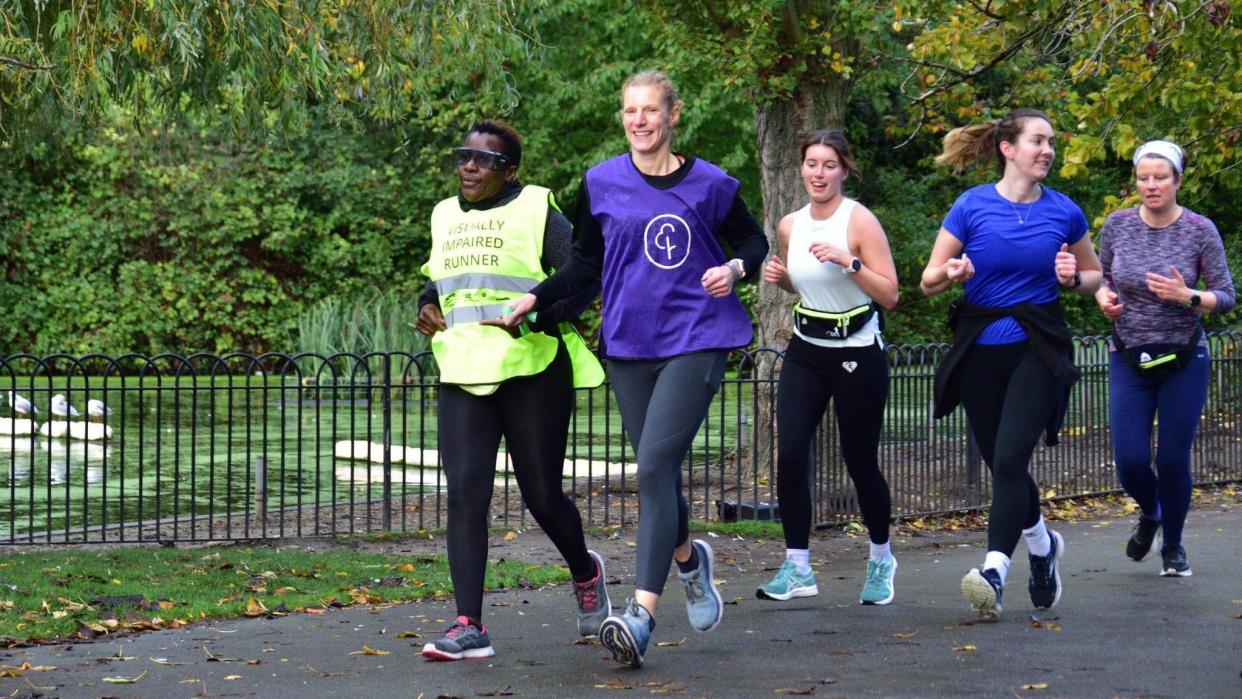Running changed my life, says brain tumour survivor

A mum-of-two who went blind after having a brain tumour removed has spoken of how running has changed her life.
Judith Namaganda, from Southwark, south London, said it was "devastating" when she lost her sight after the large tumour was removed, and she became depressed.
The 52-year-old has since complained to the hospital and is looking to take legal action - but, meanwhile, said her mental health had improved after running gave her a "reason for getting out of bed in the morning”.
Specsavers, which her lawyer believes could have made an emergency hospital referral, said it was "sorry" to hear of her diagnosis but it could not comment further as there was an ongoing investigation. King’s College Hospital said it would be "happy to arrange a further appointment".
Ms Namaganda was referred to hospital after she attended her scheduled eye test at Specsavers in September 2020.
It took eight months before she got a hospital appointment and scans revealed the brain tumour, which was causing her eyesight to deteriorate, she said.
The non-cancerous tumour was removed two months later at King’s College Hospital.
Doctors had said there was an "unlikely" chance she could lose her eyesight and when she woke up, she had no vision at all.
She said she was told by doctors that it could come back over time, but it has not, and she has since complained to the hospital.
“The hospital investigated it and said everything was OK but said if I’m not satisfied I can write to the surgeon,” said Ms Namaganda.
She has also spoken to a lawyer, who believes Specsavers may be more at fault, because of the eight-month wait to get a hospital appointment, which they believe could have been reduced if they did an emergency referral.
“I think blindness is one of the worst things that can happen to someone," said Ms Namaganda.
“Because you can’t see, you can’t even trust yourself to do something."

She said, however, running had got her health back on track.
She started to take part in her local parkrun, with help from guides, after she was diagnosed as pre-diabetic in 2022.
Since June last year, she has participated in 50 parkruns and is preparing to take part in a 10k (6.2-mile) race next month.
"I appreciate life more, it’s shown me to do what you can, when you can and to live life to the fullest when you can," she said.
A Specsavers spokesperson said they were taking the matter "seriously" and they wished Ms Namaganda "well with any ongoing treatment".
A spokesperson from King’s College Hospital NHS Foundation Trust said staff were in touch with Ms Namaganda after the operation and she could have an appointment with their clinical teams to "discuss the treatment she underwent”.
Listen to the best of BBC Radio London on Sounds and follow BBC London on Facebook, X and Instagram. Send your story ideas to hello.bbclondon@bbc.co.uk


